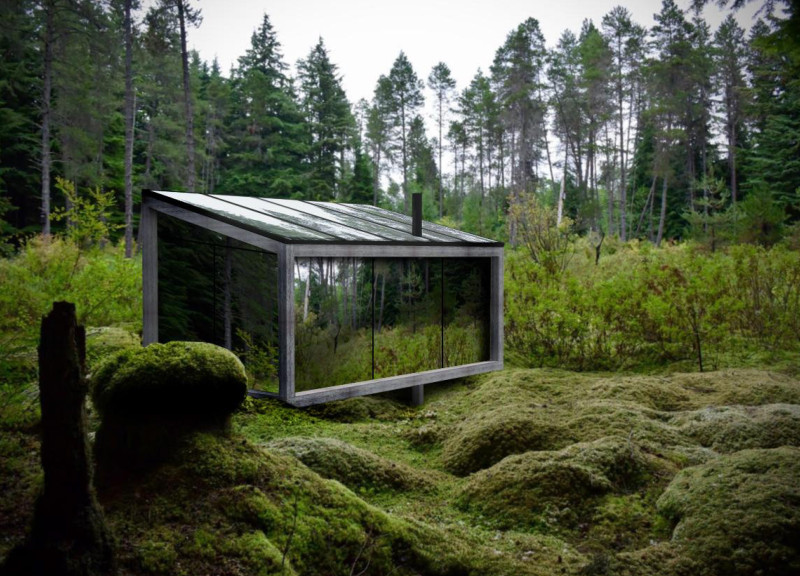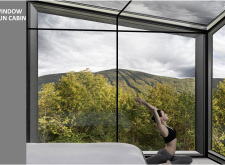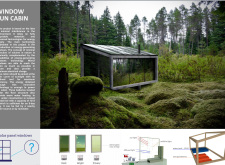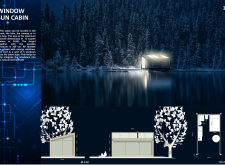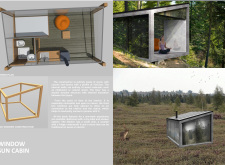5 key facts about this project
The Window Sun Cabin project presents a thoughtful approach to sustainable living within natural settings. Designed for short-term stays, the cabin offers a compact space that harmonizes with its surroundings. The primary focus is on energy-generating windows, which allow the structure to blend into the landscape while fulfilling its functional needs.
Energy Harvesting
The design incorporates energy-generating windows that provide electricity while camouflaging the cabin against its natural backdrop. These reflective elements reduce the visual impact of the structure, making it difficult to spot amid trees or near water. The cabin is oriented to capture sunlight efficiently, utilizing an inclined roof to enhance solar energy collection.
Compact Living Space
Occupying just 15 square meters and standing 360 centimeters tall, the cabin maintains a compact footprint suitable for a variety of environments. Inside, the layout embraces minimalism to foster a strong connection with the outdoors. Large front windows allow for plenty of natural light and promote fresh air circulation. While the space is small, it is carefully planned to meet the basic needs of occupants without feeling cramped.
Water Management
The design includes a functional water management system with a reservoir that can collect rainwater or draw from nearby sources. This element supports the cabin’s self-sufficiency and reduces reliance on outside utilities. Inside, amenities are strategically placed. A bathroom featuring a dry toilet and shower, as well as a compact kitchen with a sink, ensures that basic needs are met while maximizing usable space.
Material Use
Wood serves as the primary structural material, emphasizing sustainability. Columns and beams, shaped in a profile of 15 by 15 centimeters, provide stability and durability. Internal walls made of wood materials contribute to a natural aesthetic that aligns with the project’s environmentally conscious ethos. The energy-generating windows not only fulfill their energy production role but also enhance the overall design, creating a visual connection with the surrounding landscape.


